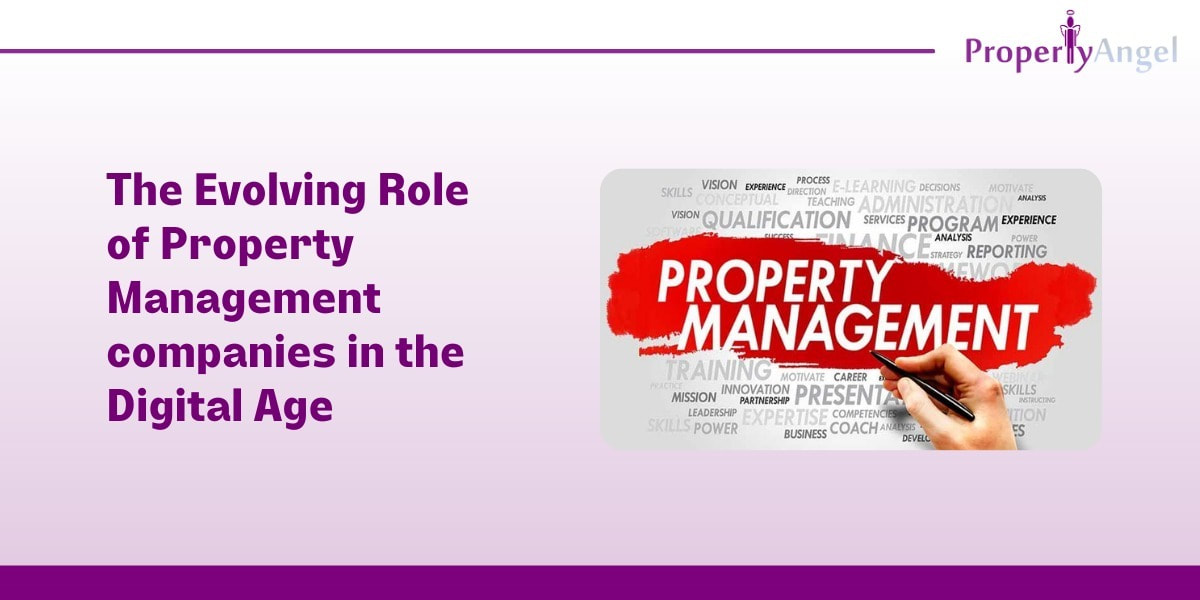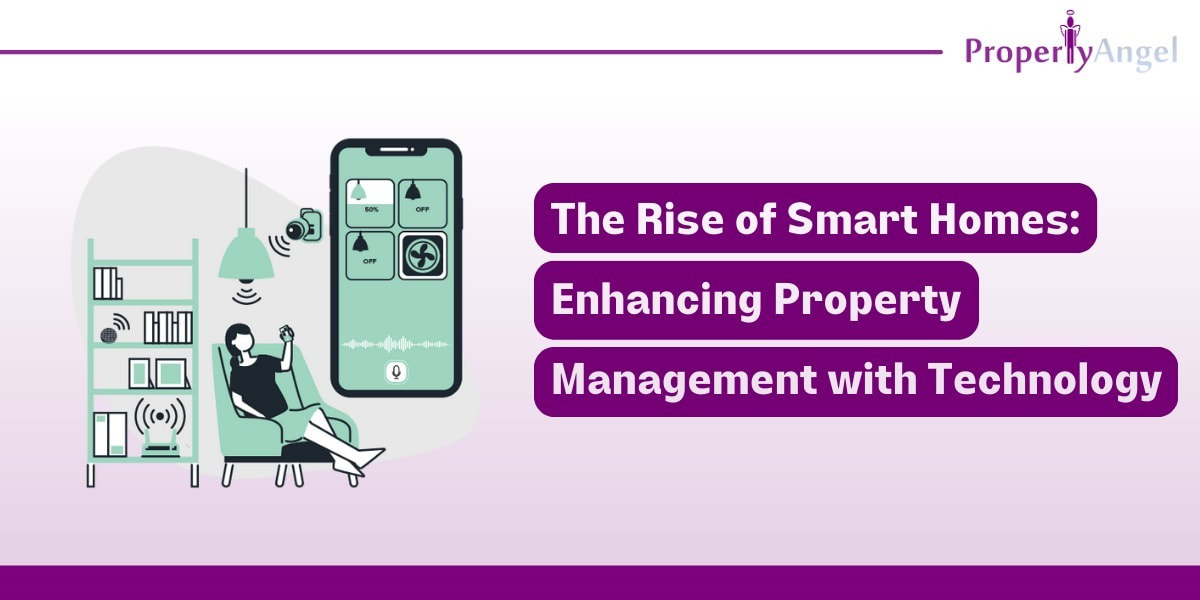|
In a significant move towards digitization of property-related processes, the Delhi Revenue Department has initiated a pilot project aimed at simplifying property registration and rental agreement procedures. Launched at the Defence Colony and Najafgarh sub-registrar offices, this innovative system allows applicants to complete various formalities online, reducing the time and effort required for property transactions. Modernizing Property Registration
The primary objective of this initiative is to speed up the registration of property documents, wills, leases, rent agreements, and related paperwork. Under the new online system, individuals seeking to register their documents can perform several key tasks remotely: Data Entry: Applicants can input their personal details and information related to the documents they wish to register. Upload documents: Supporting records and relevant documents can be uploaded digitally, ensuring a comprehensive and paperless process. Stamp Duty Payment: The system enables online payment of stamp duty, streamlining the financial aspect of property registration. Appointment Booking: Applicants can schedule appointments at sub-registrar offices for the finalization of the registration process. National Generic Document Registration System (NGDRS) Once the pilot project proves successful and stable, the National Generic Document Registration System (NGDRS) will be implemented across all 20 sub-registrar offices in Delhi. NGDRS promises to revolutionize property registration by providing a comprehensive and efficient platform for individuals and businesses. This system will provide: Enhanced User Experience To facilitate a smooth transition, the revenue department has established help desks at the two pilot sub-registrar offices. Furthermore, instructional videos have been uploaded to the NGDRS portal, offering step-by-step guidance on using the system. The department is also actively seeking feedback from users to further refine the system and address any potential issues. Reducing Transaction Time The existing property registration process, managed through the Delhi Online Registration Information System, often involves lengthy waiting periods of 20-30 days for online paper transfers. With the introduction of NGDRS, these timelines are expected to significantly decrease, providing a more efficient and convenient experience for property transactions. Enhanced Data Integration To enhance the system's effectiveness, the revenue department plans to integrate data concerning prohibited properties, including illegal and evacuee properties, which cannot be legally sold, purchased, or transferred. This integration will allow sub-registrars to verify property details online, further reducing the likelihood of fraudulent transactions. Future Integrations The revenue department has ambitious plans for the future, including the integration of data from investigating agencies such as the Central Bureau of Investigation, Enforcement Directorate, and Income Tax. This broader data integration aims to enhance transparency and accountability in property transactions. Additionally, the department plans to launch an e-registration system that will bring the Municipal Corporation of Delhi (MCD) and Delhi Development Authority (DDA) onto the same IT-enabled platform. This move will simplify property document verification for sub-registrars, ultimately benefiting property buyers and sellers. In conclusion, the introduction of an online property registration and rent agreement system in Delhi represents a significant step towards modernization and efficiency in property-related processes. This initiative aligns with the government's vision of digitizing services and will make things easier by reducing queues, preventing errors, harassments and corruption that occur during the process, ultimately benefiting residents and businesses in the national capital. As the system evolves and expands, it holds the potential to revolutionize property transactions in Delhi and serve as a model for other regions in India. About PropertyAngel PropertyAngel is a leading O2O (online-to-offline) second landlord platform. We are a Bangalore-based property management company offering professional property management for individual apartments, houses, and villas. If you need assistance in managing your property effectively in Bangalore, please contact us at (91-7406484455).
1 Comment
In the ever-evolving world of real estate, millennials are making waves with their unique preferences and aspirations. Traditionally, previous generations focused on location and affordability when it came to buying a home. However, today's millennials are setting a new trend by opting for premium homes with luxurious amenities that offer both comfort and prestige. Gone are the days when purchasing a luxury home was seen as a milestone achieved later in life. Millennials are eager to invest in opulent properties and here are the reasons. Financial Stability and Changing Work Dynamics
Experts suggest that millennials now make up a significant portion of the workforce, earning higher incomes and accumulating wealth at a faster rate than previous generations. With increased financial stability, they are more inclined to seek out properties that offer not only comfort but also prestige. From Tenants to becoming Homeowners In the past, millennials leaned towards renting rather than owning homes. However, the post-pandemic era has witnessed a significant shift in this attitude as they now desire stability. A recent survey revealed that more than half of the respondents consider real estate to be the best asset class for investment. Notably, 48 percent of those surveyed, falling within the age group of 25 to 35 years, indicated a growing inclination toward viewing real estate as a viable and attractive option for long-term investment and homeownership. The Desire for Bigger and Luxurious Homes Many millennials are now seeking bigger, more luxurious homes instead of smaller, minimalist living spaces. This shift can be attributed to the fact that as they start families, their housing needs have evolved. Premium Living Experiences In today's fast-paced world, the desire for premium living experiences has become a significant driving force behind millennials' real estate choices. They are seeking housing options that offer a range of upscale amenities, such as state-of-the-art fitness centers, rooftop pools, spa facilities and smart home automation systems. These amenities not only provide a sense of exclusivity but also cater to their desire for a seamless and convenient lifestyle. Long-Term Value Furthermore, millennials have recognized the long-term value of investing in premium homes. These properties tend to hold their value and offer the potential for high returns. As millennials continue to reshape the real estate landscape, their preference for luxury and premium living experiences is expected to drive innovation and change the way we perceive homeownership. In conclusion, millennials are redefining the real estate game by opting for luxurious properties, recognizing the value of real estate as an investment, and seeking bigger, more feature-rich homes. This generation is reshaping the industry with their unique blend of financial stability, evolving needs, and an inclination for premium living. About PropertyAngel PropertyAngel is a leading O2O (online-to-offline) second landlord platform. We are a Bangalore-based property management company offering professional property management for individual apartments, houses, and villas. If you need assistance in managing your property effectively in Bangalore, please contact us at (91-7406484455). Building National Real Estate Assets with events like G20 - A New Vision for India's Growth16/9/2023 In recent years, a significant transformation has been taking place in India's real estate landscape, driven by the need for strategic development beyond the national capital. Urban design experts are advocating for the creation of "national real estate assets" in cities across the country, inspired by the success of international events like the G20 summit, which have been held in various locations recently. The Shift in Perspective
Traditionally, the focus of hosting national and international events has largely centered on Delhi, with venues like Vigyan Bhavan being the go-to choices. However, this approach is evolving, as experts recognize the importance of spreading the development to different cities. Prime Minister Narendra Modi emphasized this shift, highlighting the "democratization" of events, where the G20 Presidency has seen over 220 meetings in 60 cities, involving participants from diverse backgrounds and nationalities. Avoiding costly and impractical projects Creating such national real estate assets is a promising prospect, but the experts stress the need for meticulous planning to ensure their long-term utility. The goal is to prevent these venues from becoming "dead assets" that burden the host city. Modern Infrastructure for Progress One prime example of successful asset creation is the Bharat Mandapam, conceived as part of the Pragati Maidan redevelopment project. As the nation progresses, modern infrastructure is essential to keep pace with the times. These legacy assets, created with budgetary allocations, are expected to play a pivotal role for the next several decades. The need for More Facilities There is a growing need for similar facilities across the country. New infrastructure not only generates revenue but also projects India as a destination for meetings, incentives, conferences, and exhibitions (MICE) tourism on a global scale. Beyond International Use Experts advocate planning these assets to serve not only international events but also local purposes. Ensuring that these facilities remain viable in the long term is crucial to avoid economic burdens on host cities. Additionally, mixed-use development around convention centers can enhance their sustainability. National Significance and Economic Contributions These projects hold national significance, contributing to the economic growth of the areas they are located in. They create jobs, add value to real estate, and offer timeless design concepts. To maximize their impact, asset creation should be spread across the country to accommodate both national and international events. As India's real estate landscape evolves, there is a growing recognition of the need for strategic planning and investment in national real estate assets. These assets not only serve as venues for events but also contribute to the overall growth and development of the regions they are situated in. The vision is clear: a future where India's cities shine as hosts for national and international gatherings, with modern infrastructure and thriving communities. In conclusion, the creation of these national real estate assets represents a significant shift in India's urban planning strategy. It's a step toward a more inclusive and balanced development approach, ensuring that prosperity and growth are not limited to the national capital alone. The nation's journey toward becoming a global leader includes expanding its horizons and investing in the infrastructure of tomorrow, a vision that promises a brighter future for all. About PropertyAngel PropertyAngel is a leading O2O (online-to-offline) second landlord platform. We are a Bangalore-based property management company offering professional property management for individual apartments, houses, and villas. If you need assistance in managing your property effectively in Bangalore, please contact us at (91-7406484455). From co-working to co-living spaces – youngsters today have so many options. Remember back in the day when hostels were the only option for students moving out of their hometowns for college? Well, those days are long gone! With co-living spaces in India, you get all the benefits of a hostel, like convenience and safety, while feeling like you're staying in a hotel. What is Co-living?
Co-living is all about meeting the needs of comfort, convenience, and community, which traditional living options often fall short on. Co-living spaces offer fully furnished rooms with all the necessary amenities. This includes a common study zone the students can use, a common kitchen, a utility space and a lounge area, and a private bathroom and bedroom each resident can access. Co-living spaces in India also provide cleaning and maintenance services. Therefore, you don't need to worry about separate payments for deposits, utilities, furniture, and those annoying agent commission fees. It's all bundled up under one operator who handles everything related to your living quarters. Now, there are many different ways to operate co-living businesses. Some operate with minimal assets, using profit-sharing leases or management agreements. Others prefer fixed market-based leases, which give landlords a steady income over a longer period. Since co-living attracts a wide range of clientele, these operators have the potential to scale up their operations, which means they can offer property owners higher incomes. Plus, they handle services like cleaning, furniture, and utilities, making the whole experience even better. It's a win-win situation for everyone involved! But it's not just about the physical perks. Co-living operators know how to create a sense of community. They organise events and meet-ups for all the tenants to mingle and have a good time. The Growth Story of Co-living Spaces in India Co-living spaces are gaining traction in Indian cities, both in terms of delivering services and customer acquisition. There's a shortage of accommodation options for students and people with new incomes, and the market just keeps getting bigger. That's why corporate developers and start-ups are embracing co-living. Goldman Sachs and Warburg Pincus have invested in co-living spaces as well. Renting is becoming more popular because of rising real estate prices and the younger generation's lack of commitment to home ownership. The old-school paying guest tradition just doesn't cut it anymore. Millennials have high expectations, and they want top-quality modern, affordable living spaces. In a survey back in 2018, 72% of people were totally on board with co-living spaces. And more than 55% of people were in the age range of 18-35 years. The survey, which covered big metropolitan cities, found preferred rentals included the brackets ₹10,000 to ₹15,000, while proximity to work and community infrastructure remained in the top priority for millennials. Many international brands are partnering with Indian names in Bengaluru, Pune, Delhi NCR, and others to rent apartment blocks and lease beds with amenities and services like electricity, housekeeping, and meals. Challenges of Co-living Spaces in India The operators of co-living spaces in India also face some unique challenges. One big challenge is low returns on investment. Therefore, the operators must be super smart about using the space efficiently. They need to make sure every inch counts and provide a seamless and hassle-free experience to their tenants. Also, compared to other thriving markets like Hong Kong and Singapore, Indian customers have lower spending power. So, co-living operators need to find that sweet spot where they can provide quality services while keeping the costs reasonable for their customers. Why Do Millennials Prefer Co-living Spaces in India? Young professionals and students often face many issues dealing with landlords and agents. They have strict and biassed mindsets and make decisions based on their own rules. They also come up with arbitrary policies, like curfews, no friends or family allowed, and even dictating food preferences. It creates a frustrating living atmosphere, especially for young adults trying to find their way in the world. And let's not forget about the outrageous rental deposits they demand. It's difficult, especially when you're starting your career or relying on your parents for financial support. However, co-living spaces in India are here to save the day. They're making a real impact in this chaotic rental market. Co-living space operators are offering comfortable and trendy living spaces with clear pricing policies and managed services. And the best part? You get to experience a collegiate atmosphere with a cool community vibe. About PropertyAngel PropertyAngel is a leading O2O (online-to-offline) second landlord platform. We are a Bangalore-based property management company offering professional property management for individual apartments, houses, and villas. If you need assistance in managing your property effectively in Bangalore, please contact us at (91-7406484455). Non-Residential Indians (NRIs) often face challenges when they want to purchase real estate in their home country. However, with the advent of technology, online real estate events have emerged as a game changer. Online real estate events offer NRIs unparalleled opportunities to explore, evaluate, and ultimately acquire their dream homes. In this article, PropertyAngel will discuss how online real estate events have empowered NRIs in their quest for homeownership. Global Accessibility and Convenience
Online real estate events of NRI property management companies offer global accessibility. Therefore, NRIs can participate in these events regardless of their geographical location. Using a computer or mobile device, an NRI can get direct access to the best real estate developers and projects. This accessibility allows NRIs to explore a wide range of options, understand the local real estate market more deeply, and make informed decisions about their dream home purchase. Exclusive Event Offers Usually, NRI property management companies present exclusive event offers at their online real estate events. They recognise the value of the NRI market and leverage online events as a platform to showcase the best projects across India and attract potential buyers. NRIs attending these events can access special pricing, on-the-spot booking, and other benefits not typically available through traditional channels. These exclusive offers, along with the ability to compare multiple properties simultaneously, allow NRIs to find the best deals that align with their budget and preferences. Free Expert Guidance Since NRIs are inexperienced with local laws and regulations, real estate transactions might be difficult for them. Therefore, NRI property management companies offer free expert advice through online real estate events. They connect NRIs with experienced property managers, lawyers, and financial advisors. During these events, NRIs can interact with industry experts through live chats, video conferences, or dedicated Q&A sessions. These interactions provide invaluable insights into the legal, financial, and practical aspects of buying property as an NRI. From understanding legal requirements to assessing investment potential, these experts help NRIs make informed decisions throughout their buying journey. 3D Walkthroughs & Video Chats Online real estate events by NRI property management companies offer 3D walkthroughs and video chat capabilities. These immersive 3D tours allow NRIs to explore the property from every angle, virtually walk through rooms, and visualise the layout and dimensions. The video chat option allows NRIs to communicate with real estate agents and property developers in real-time. With this face-to-face interaction, NRIs will be able to ask specific questions, seek clarification, and address any concerns they may have. Talks and Training Online real estate events of NRI property management companies provide insightful talks and training sessions from industry experts and professionals. It may include discussions on legal regulations, financing options, investment strategies, property market trends, and practical tips for navigating the real estate landscape. Some online real estate events also offer educational resources like webinars, e-books, and guides to equip NRIs with the knowledge and confidence to navigate the real estate market successfully. Transparency and Trust Building Transparency is very important in real estate transactions. Therefore, online real estate events of NRI property management companies provide comprehensive property information, legal documentation, and verified project credentials. NRIs can scrutinise property details, compare prices, and access reviews and ratings shared by previous buyers. This transparency will allow NRIs to make informed decisions and reduce the risks associated with long-distance property transactions. Network Expansion and Community Building Online real estate events of NRI property management companies create a platform for networking and interaction. These events bring together like-minded individuals who share a common goal: purchasing their dream home. NRIs can engage in discussions, share experiences, and seek advice from peers who have successfully navigated the real estate landscape. Final Words Online real estate events have transformed the landscape of property purchasing for NRIs. NRIs now have the means to explore, evaluate, and connect with the real estate market in their home country, regardless of their physical location. These virtual platforms have levelled the playing field, empowering NRIs to pursue their dream of owning a home with convenience, confidence, and comfort. About PropertyAngel PropertyAngel is a leading O2O (online-to-offline) second landlord platform. We are a Bangalore-based property management company offering professional property management for individual apartments, houses, and villas. If you need assistance in managing your property effectively in Bangalore, please contact us at (91-7406484455). In the bustling city of Bengaluru, where urban dreams meet reality, the quest for the perfect abode has taken an intriguing turn. The real estate market is buzzing with activity as rental prices reach new heights in prime locations. As the demand and supply scales tip, a tale of innovation, resourcefulness, and the pursuit of the ideal home unfolds. Local brokers, the hidden heroes of the home quest, have improved and become more inventive. Faced with rising rental rates and an ever-expanding list of eager home searchers seeking for rental properties, these brokers have mastered the concept of innovation. Some have gone above and beyond the standard playbook, recruiting field executives to scour the city for any possible rental properties. These committed property managers scour neighborhoods like modern-day explorers, searching out hard-to-find "To let" signs and updating the inventory with fresh prospects at the end of the day.
The popularity of "housing quests." This innovative approach tries to make the flat search process more enjoyable rather than stressful. Consider personalized tours of available residences, complete with transportation choices and even extra benefits such as trips to nearby attractions. Sunil Singh, Realty Corps' visionary creator, introduces an interactive orientation programme for renters. The package, which starts at Rs 10,000, offers a full experience that includes everything from property tours to seeing the colorful neighborhoods. These broker-led excursions helped a tech-savvy Bengaluru resident find an ally. She leads a guided tour of five to six suitable properties for a cost ranging from Rs 1,000 to Rs 2,000. Aside from the comfort of transportation, Keerthi obtains an insider's perspective - a seasoned guide who understands the ins and outs of the market. But what is behind this unexpected spike in innovation? The return of employees to the city is fueling a surge in rental demand. As businesses re-establish in-office operations, a flood of tenants enters the market. What are the ramifications? Rental costs in once-affordable areas like Whitefield have risen by 40%. A 2 BHK that used to cost Rs 25,000 now costs Rs 35,000-38,000, while luxury 3 BHKs in sought-after districts like Sarjapura, Indiranagar, and HSR Layout charge more than Rs 80,000. Tenants are looking for alternatives as rents rise. Begur and other areas near Hosur Road are rather inexpensive. However, analysts warn that even these sanctuaries may soon see rising costs as demand continues its unavoidable rise. Brokers have easily withheld the capacity to adjust in this constantly shifting environment. They overcome obstacles by adopting strategies such as treasure-hunting hunts for hidden gems or creating immersive property tours. The ever-changing story of Bengaluru rentals exemplifies human resourcefulness. While renters adapt and brokers devise new techniques, the search for the appropriate rental home continues to evolve, reflecting the dynamic changes in the city's housing market. So, in the heart of Bengaluru's concrete jungle, the search for shelter transforms into a story of collaboration, innovation, and an unwavering pursuit of that perfect place to call home. About PropertyAngel PropertyAngel is an award-winning second landlord platform and is a leading O2O (online-to-offline) second landlord platform. We are a Bangalore-based property management company offering professional property management for individual apartments, houses, and villas. If you need assistance in managing your property effectively in Bangalore, please contact us at (91-7406484455). In a recent move that indicates a paradigm shift in the real estate industry, Prestige Group, a key player in the sector, has embraced the metaverse, an immersive virtual reality sphere revolutionizing home buys to know properties well. Partnering with PropVR which specializes in 3D visualization, Prestige Group in a few months, is set to introduce luxury projects within this futuristic digital landscape, offering enhanced experiences to potential buyers . Recent reports highlight the confirmation of this transformative partnership during a real estate digital transformation event. Sunder Jagannathan of PropVR, addressed the audience, throwing light on the potential of this collaboration. Vishesh Kaul, Chief Information and Digital Officer at Prestige Group revealed that the shifting dynamics in real estate transactions triggered by the pandemic, which in turn made way towards this innovative path.
Prestige Group's upcoming new luxury projects are all set for launch within the next few months which will take center stage in this virtual reality environment. With a calculated progression in mind, the initial focus will be on premium offerings and gradually move on to affordable property options. Kaul's vision for the metaverse extends beyond residential properties, as he envisions the application of this technology to be incorporated at malls as well depending on the taste of people’s preference. Notably the use of virtual reality in real estate is gaining significant traction among prospective property buyers. As observed by Sunder Jagannathan, the integration of this technology has led to a substantial increase in sales to NRI homebuyers, marking a notable shift in the purchasing landscape. While this innovative leap holds immense promise, challenges still continue to be evident, as informed by Kaul. He acknowledges the hurdles posed by costs and the process of familiarizing users with these tech systems. As more young people who know about the metaverse are starting to buy properties he is hopeful that this challenge can be mitigated. As they get more involved, the tech should become cheaper. Dhruba Ghosh of Provident Group, brings attention to the coexistence of traditional preferences among Indian buyers, while acknowledging the Technological Proficiency of the younger generation. To summarize, as millennials and Gen Z redefine engagement, Kaul envisions a swift shift that will reshape the real estate landscape step by step going forward. The introduction of Prestige Group into the metaverse marks a pivotal moment in the real estate sector, introducing a fresh perspective for better understanding and encountering properties. This innovative leap promises to reshape the course of real estate engagement, with the metaverse leading the way towards a new era of interaction and exploration. About PropertyAngel PropertyAngel is an award-winning second landlord platform, headquartered in Bangalore with an AUM of Rs. 1500 crores. Incorporated in 2014, PropertyAngel's tech-enabled real estate asset management services for individual apartments, villas and houses, have won awards from Zoho, grants from Facebook, and been recognized several times as among the top 10 property management companies in India. Technology has revolutionised many industries in the digital age, and property management is no exception. Property management companies help property owners maintain and manage their real estate assets. With the advent of advanced digital tools and innovative solutions, these companies have witnessed a significant transformation in their traditional responsibilities. In this article, we will explore the evolving role of property management companies in the digital age and how Proptech has reshaped their operations, communication, and overall effectiveness. Streamlined Operations through Automation
Property management companies now use sophisticated software and platforms to streamline their operations. These tools allow them to handle tasks like tenant screening, lease management, rent collection, maintenance requests, etc., more efficiently. By automating these processes, property management companies can save time, reduce manual errors, and provide a more seamless experience for both property owners and tenants. Enhanced Communication and Tenant Engagement Previously, the only means of communication between property managers, property owners, and tenants were phone calls, emails, or physical paperwork. However, Proptech has transformed this aspect of property management. Property management companies now leverage digital communication channels like mobile apps, online portals, social media platforms, etc., to connect with tenants and respond to their concerns. Also, tenants use these platforms to submit maintenance requests, pay rent, and receive updates in real-time, increasing overall satisfaction and convenience. Advanced Data Management and Analytics The digital age has also brought forth a wealth of data that property management companies leverage to make well-informed decisions and improve their operations. Using advanced data management systems and analytics tools, property management companies collect, store, and analyse data on property performance, rental rates, market trends, tenant behaviour, etc. By harnessing these insights, they can optimise rental rates, identify maintenance patterns, develop targeted marketing strategies, etc. Data-driven decision-making allows property management companies to adapt to market demands more effectively and provide superior services to property owners and tenants. Remote Property Monitoring and Maintenance The emergence of smart home technology and Internet of Things (IoT) devices has changed how property management companies monitor and maintain real estate assets. Now, property managers can remotely monitor properties and address potential issues with connected devices like smart thermostats, security cameras, water leak sensors, etc. This technology enables real-time emergency alerts, proactive maintenance, and energy-saving initiatives. Hence, property management companies can ensure optimal property conditions, reduce operational costs, and minimise the risk of property damage through remote monitoring and maintenance. Digital Marketing and Tenant Acquisition Traditionally, property management companies relied heavily on offline marketing methods, such as signage, newspaper ads, and word-of-mouth referrals, to attract potential tenants. However, online marketing has become an important part of their strategy in the digital age. Property management companies now leverage digital marketing strategies like search engine optimisation (SEO), social media advertising, and listing platforms to reach a broader audience and attract qualified tenants. Through targeted online campaigns, they showcase property features, highlight amenities, and create compelling content to entice prospective tenants. Efficient Financial Management Proptech has revolutionised financial management for property management companies and simplified tasks like accounting, rent collection, expense tracking, etc. Advanced property management software offers robust financial modules that automate rent collection, generate invoices, and provide detailed financial reports. These tools also integrate with online payment systems, which allow tenants to pay rent online conveniently. By streamlining financial processes, property management companies improve cash flow management, minimise errors, and enhance transparency in financial transactions. Final Words The digital age has certainly transformed the role of property management companies. It empowered them with innovative tools and technologies to streamline operations, enhance communication, and improve overall efficiency. Through automation, advanced data management, remote monitoring, and digital marketing, property management companies are better equipped to meet the evolving needs of property owners and tenants. As technology continues to advance, property management companies will deliver exceptional services and maximise the potential of real estate assets. About PropertyAngel PropertyAngel is an award-winning second landlord platform, headquartered in Bangalore with an AUM of Rs. 1500 crores. Incorporated in 2014, PropertyAngel's tech-enabled real estate asset management services for individual apartments, villas and houses, have won awards from Zoho, grants from Facebook, and been recognized several times as among the top 10 property management companies in India. In recent years, smart homes have changed how we live and interact with our living spaces. However, this technological advancement has also played a big role in property management. Through smart home technology, property management companies can now improve operational efficiency, tenant experiences, optimise resource management, etc. In this article, PropertyAngel will discuss how the rise of smart homes is helping property management to transform their operations and deliver exceptional property management services in Bangalore. Streamlining Operations and Maintenance
Smart homes enable property management services in Bangalore to streamline operations and maintenance processes. Previously, property managers had to physically visit each unit to conduct routine inspections, perform maintenance tasks, and address tenant requests. However, these processes have simplified and become more efficient with smart home devices and automation systems. For example, property managers can remotely monitor and control various aspects of a unit, like temperature, lighting, security systems, etc. This eliminates the need for manual adjustments. Also, smart sensors can detect issues like water leaks or malfunctioning appliances and send real-time notifications to property managers, so they can take immediate action. Enhanced Security and Safety Measures Property management services in Bangalore greatly benefit from the advanced security and safety features of smart homes. Connected security systems, including smart locks, surveillance cameras, and motion sensors, allow property managers to monitor properties remotely and respond quickly to any security concerns. This level of supervision ensures the safety of tenants and their belongings. Moreover, smart smoke and carbon monoxide detectors can provide early warnings and instantly notify property managers of emergency services. This proactive approach significantly reduces the risk of property damage and improves overall safety. Improved Energy Efficiency and Resource Management Energy efficiency is a big problem in property management, both from an environmental and cost-saving perspective. However, smart homes help property management services in Bangalore minimise energy usage and waste. Smart thermostats allow property managers to remotely control heating and cooling systems and create schedules for energy conservation. By avoiding unnecessary energy consumption during unoccupied periods, property managers can lower utility costs and reduce the environmental impact of their buildings. In addition, smart lighting systems and automated blinds can also help property managers monitor and manage energy consumption across multiple units or buildings, identify areas of high usage, and implement strategies to minimise wasteful practices. Data-driven Decision Making Smart homes generate a wealth of data that property management services in Bangalore can leverage to make informed decisions and optimise their operations. Property managers can gain valuable insights into the performance of their properties by collecting and analysing data on energy consumption, occupancy patterns, maintenance requirements, etc. This data-driven approach enables property management companies to implement predictive maintenance strategies and identify areas for improvement. Streamlined Move-in and Move-out Processes Moving in and out of rental properties can be a cumbersome process. However, smart home technology can simplify and streamline these processes for both property managers and tenants. For example, smart locks and keyless entry systems allow property managers to grant access to new tenants remotely, eliminating the need for physical key handovers. This saves time and ensures a smooth transition for tenants. Similarly, during move-outs, property management services in Bangalore can remotely revoke access and reset the smart home systems, ensuring that previous tenants no longer have control over the property. This enhanced security measure reduces the risk of unauthorised access and improves the efficiency of the move-out process. Increased Property Value and Competitive Edge Integrating smart home technology can significantly increase the value of rental properties and give property management services in Bangalore a competitive edge in the market. With smart home features becoming increasingly desirable among people, properties equipped with these technologies often attract a larger pool of potential tenants. The added convenience, security, and energy efficiency a smart home offers can differentiate properties and position them as highly desirable in the market. Besides, property management companies can also show their commitment to innovation and providing modern, cutting-edge living experiences. This can elevate their brand image and attract tenants who prioritise technology-enabled lifestyles. Final Words The rise of smart homes has had a profound effect on property management companies. By embracing this technology-driven future, property management services in Bangalore can position themselves at the forefront, that values efficiency, sustainability, and tenant satisfaction. About PropertyAngel PropertyAngel is an award-winning second landlord platform, headquartered in Bangalore with an AUM of Rs. 1500 crores. Incorporated in 2014, PropertyAngel's tech-enabled real estate asset management services for individual apartments, villas and houses, have won awards from Zoho, grants from Facebook, and been recognized several times as among the top 10 property management companies in India. Bangalore attracts a big number of people due to its growing economy, flourishing culture, and wealth of opportunities. Because of its importance as an IT hub, the world recognises Bangalore as the ‘Silicon Valley’ of India. Therefore, the world’s most important tech companies like Wipro, IT, INFOSYS, IBM, CISCO, TCS, RMZ Eco World, and Google have set up large offices in Bangalore. The city is home to IT giants like Infosys and Wipro. Bangalore is a bustling cosmopolitan metropolis offering a luxurious and upscale lifestyle with many cafes, shopping malls, and restaurants. Also, the city has a pleasant climate throughout the year.
With more people moving to Bangalore, the demand for housing has increased, resulting in the expansion of construction and development activities. Therefore, the Bangalore real estate market exhibits a wide range of trends. It caters to diverse preferences, ranging from beautiful high-rise apartments to affordable flats designed for first-time buyers. Today, we look at the emerging localities that make the best investment opportunities in Bangalore. Hennur Hennur is adjacent to the outer ring road. Due to its range of housing choices, from luxury apartments to mid-rise buildings and villas, this place makes one of the best investment opportunities in Bangalore. Hennur is one of the most iconic areas in Bangalore because of its attractions like Bangalore Palace, Hennur Biodiversity Lake, Bamboo Forest, and multiple lakes. The transportation facilities offer excellent connectivity to major locations in Bangalore, while urban planning and infrastructure are well-developed. Hennur also has a number of healthcare institutes, educational institutions, and recreational facilities. Hebbal If you want to settle in Bangalore and invest in real estate, Hebbal is a highly recommended place. It is near Nagavara Lake and is a prime location in North Bangalore. Hebbal has high-rise apartments and some low to mid-rise apartment complexes. The presence of the Eastern Shopping Mall, International Tech Park, and various other technology parks have greatly contributed to the employment growth in this region. Therefore, Hebbal has become one of the best investment opportunities in Bangalore. Hebbal is well-connected to the rest of the city through Bellary Road, the ORR (NH 44), and the Hebbal Flyover. Whitefield Whitefield is a commercial and residential area situated in East Bangalore. Many prominent landmarks are nearby, including Inorbit Mall, Phoenix Marketcity, and IT parks. Whitefield has several notable residential developments, such as DivyaSree Republic of Whitefield, Prestige Lakeside Habitat, and Prestige Shantiniketan. Also, Whitefield connects to the rest of the city through the Whitefield Railway Station, Whitefield Main Road, SH-35, and Old Airport Road. Due to its excellent connectivity, it offers one of the best investment opportunities in Bangalore. Electronic City Not sure where to invest at an affordable price in Bangalore? With abundant work opportunities and educational and cultural facilities, Electronic City offers one of the best investment opportunities in Bangalore for affordable housing. Electronic City covers approximately 800 acres, comprising Agrahara Konappana and Doddathogur villages. It is a famous technology hub in Bangalore. Electronic City's connectivity has improved significantly because of the Electronic City Elevated Expressway, which is now connected to Heelalige Railway Station, Hosur Road, Electronic City Flyover, and NICE Ring Road. Devanahalli Devanahalli is in the northeastern part of the city, approximately 15 kilometres away from Kempegowda International Airport. It is recognised for its spacious, green, and thoughtfully designed residential area. Devanahalli has many notable residential and commercial projects. Some major developments in this area include Brigade Orchards Parkside, Hiranandani Cypress, Salarpuria Sattva Park Cubix, and Ozone Urbana. These projects contribute to the growth of Devanahalli, placing it on the list of best investment opportunities in Bangalore. Yelahanka Yelahanka, located in the northern suburbs of Bangalore, has excellent physical and social infrastructure. Yelahanka has a diverse range of apartment and villa projects. Yelahanka is surrounded by several ongoing residential developments. Some of these developments include Purva Venezia, Godrej Avenues, Unitech Heritage Estate, and NCC Urban Nagarjuna Aster Park. Yelahanka is well connected to other parts of the city via Doddaballapur Road, NH-44 (Bellary Road), and Yelahanka Road. Sarjapur Road If you're looking for investment opportunities in Bangalore, Sarjapur is a rapidly developing neighbourhood with good road connections to prominent IT clusters such as Electronic City, Marathahalli, and Whitefield. Sarjapur Road has an array of restaurants, retail shops, movie theatres, banks, etc. Also, it has many notable landmarks, including Sarojamma Complex, Market Square Mall, and Columbia Asia Hospital. The Sarjapur Road is connected to the ORR, SH-35, and Hosur Road. Thanisandra Thanisandra is a developing locality situated on Thanisandra Main Road in North Bangalore. The locality is surrounded by several residential areas, including Hebbal, Nagawara, HBR Layout, and Jakkur. Many IT workers who work for companies with offices in Manyata Tech Park prefer to live in this region. The surrounding area is home to many notable residential projects like Mantri Energia, Arvind Sporcia, and Zenith Residences - Karle Town Centre. The Kempegowda International Airport is 26 km away from Thanisandra. Besides, this place is accessible via Thanisandra Main Road, Bellary Road, ORR, and Hennur Road. Kanakapura Road Kanakapura Road, located in the southern corner of Bengaluru, is one of the greenest parts of the city. The locality is near Anjanapura, Banashankari, Konankunte, JP Nagar, Talagattapura, and Kumaraswamy Layout. The area has several noteworthy residential projects, such as Prestige Falcon City, Concorde Napa Valley, Brigade Meadows, Mantri Tranquil, and Godrej Eternity. Kanakapura is near the Bidadi Industrial Area, which is home to several major companies like Featherlite, Toyota, Hindustan Unilever, Coca-Cola, etc. Kanakapura is also close to many IT parks, including Global Village Tech Park and Kalyani Magnum Tech Park. Bannerghatta Main Road Also known as state highway 87, Bannerghatta Road passes through the southern part of Bangalore. This 49-km route starts from Adugodi Christian Cemetery to Anekal. Bannerghatta Main Road, being the oldest part and a prominent residential locality, has remained one of the investment opportunities in Bangalore. There are several prominent developers in the region, such as Opera Structures, Celebrity Prime Develops, Honey Properties, and Mahaveer Group. The Bannerghatta Road is one of the main road networks and is well connected to the other parts of the city. PropertyAngel hopes this article has helped you find the best investment opportunities in Bangalore. About PropertyAngel PropertyAngel is an award-winning second landlord platform, headquartered in Bangalore with an AUM of Rs. 1500 crores. Incorporated in 2014, PropertyAngel's tech-enabled real estate asset management services for individual apartments, villas and houses, have won awards from Zoho, grants from Facebook, and been recognized several times as among the top 10 property management companies in India. |
Archives
July 2024
Categories |











 RSS Feed
RSS Feed